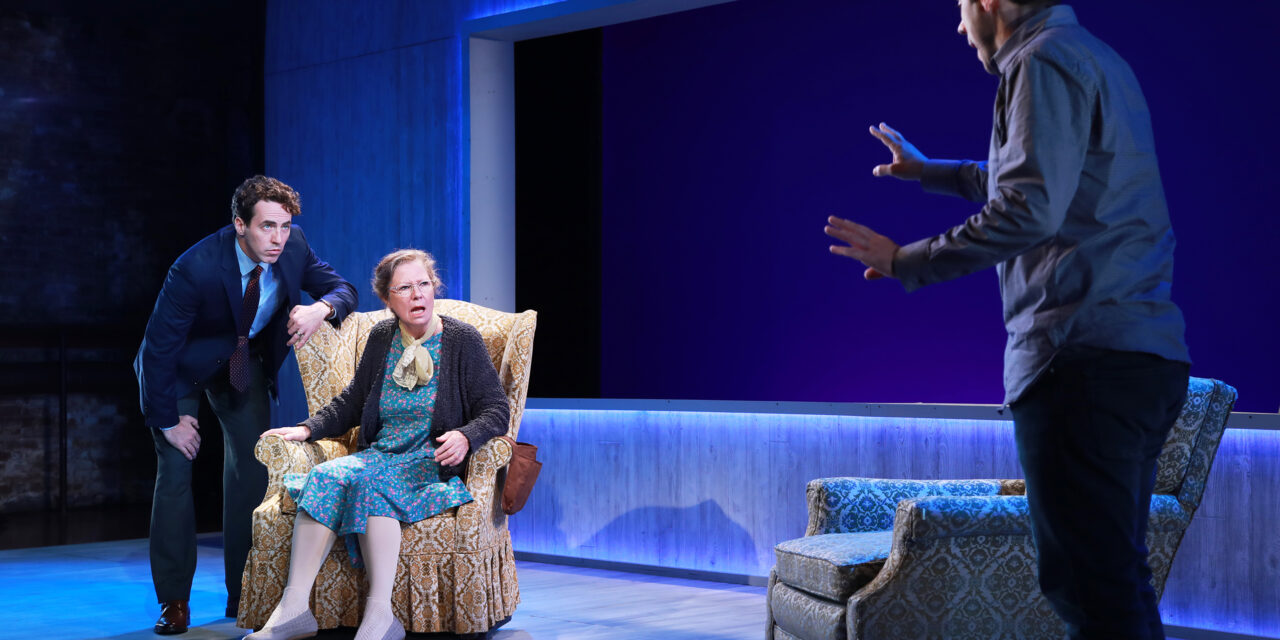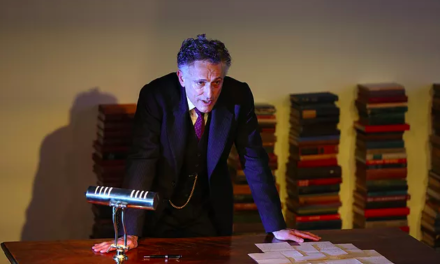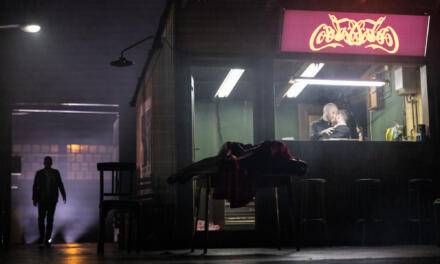Is the truth always best or should some secrets go to the grave? For playwright Paul David Young, that question must still go through his mind. His new play, All My Fathers, made its world premiere last week at New York’s famous La Mama Experimental Theatre Club, directed by Evan Yionoulis. Young, whose other works include Faust 3 and In the Summer Pavilion, has chosen to share his family’s greatest secret while taking the audience on his journey to discovering his own truth.
Alzheimer’s and dementia have turned the elderly Regina Younger (Deborah Hedwall) into a bitter, insulting mother. Her son David (Richard Gallagher), who is gay and left his native Kentucky years ago for New York, has come home to visit. David does not know how to cope with his mother’s condition. Arguments break out, tears are shed, and old scars are ripped quickly back open. The stress only grows as his father Bill (Jonathan Hogan), who seems to be in good health, reveals he has lung cancer that he is choosing not to treat. Despite all of this, David is unprepared to learn his mother’s dying secret: he is the child of her affair with the family pediatrician, Dr. Woodman (Brian Hastert).

All My Fathers by Paul David younger at La Mama Experimental Theatre Club in New York City, 2019. Photo Credit Theo Cote.
All My Fathers starts out as a witty and naturalistic family drama but turns into a muddled, meta-theatrical autobiography in its later half. Time both stops and jumps around. Bill ceremoniously exits as we learn of his death only to quickly return to the stage a few minutes later as if nothing has happened. David Younger is clearly a stand-in for playwright Paul David Young but the rules of this relationship are not set. There’s a lot that suddenly changes and the audience is left with too many questions about the form mid-performance.
Fiction seems to be meeting reality here, but it’s confusing. For example, as David searches for the truth about his father, screenshots of actual emails exchanged between the writer and his brother are projected upstage. The results of a DNA test kit confirming Woodward’s paternity are shown as well, but only after some pleading by the doctor on behalf of the audience to whom he gestures, acknowledging our presence in the space. Have they known we’ve been here the whole time? It’s unclear.
To add to the confusion, Young has woven in countless lines from other “troubled family” plays, including All My Sons, Oedipus, and Hamlet. A bibliography is even provided in the program. As the play’s world breaks in the second half, these literary references increasingly stand out. But are the actors reciting these lines as themselves or, rather, are the characters saying them to each other? This, too, is unclear and it almost feels as if a choice hasn’t been made by the playwright or the production.
Nevertheless, the play has bright moments of humor and, while they may not be family by blood, Bill’s love for David is unquestionable. Hedwall delivers the most impressive performance of the cast, masterfully capturing the devastating reality of dementia. Furthermore, it’s clear Young knows his parents always wanted the best for him. Love trumps all in All My Fathers, but the dramaturgy is rocky.
This post was written by the author in their personal capacity.The opinions expressed in this article are the author’s own and do not reflect the view of The Theatre Times, their staff or collaborators.
This post was written by John Brunner.
The views expressed here belong to the author and do not necessarily reflect our views and opinions.


















